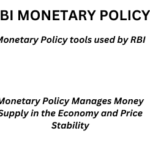EARTH DAY 2021

Earth Day is celebrated on April 22 of every year.
The theme this year is “Restore Our Earth” and its focus is on natural processes, emerging green technologies and innovative thinking that can restore the world’s ecosystems. And therefore, the theme also rejects the belief that only mitigation and adaptation are the ways to address climate change.
Climate change represents the biggest challenge to the future of humanity and the life-support systems that make our world habitable. Earth Day was a unified response to an environment in crisis — oil spills, smog, rivers so polluted they literally caught fire.
LEARNING FROM HOME/ WITHOUT CLASSES/ BASICS
On April 22, 1970, 20 million Americans — 10% of the U.S. population at the time — took to the streets, college campuses and hundreds of cities to protest environmental ignorance and demand a new way forward for our planet.The first Earth Day is credited with launching the modern environmental movement, and is now recognized as the planet’s largest civic event. The first Earth Day in 1970 launched a wave of action, including the passage of landmark environmental laws in the United States. The Clean Air, Clean Water and Endangered Species Acts were created in response to the first Earth Day in 1970, as well as the creation of the Environmental Protection Agency (EPA). Many countries soon adopted similar laws.Earth Day continues to hold major international significance: In 2016, the United Nations chose Earth Day as the day when the historic Paris Agreement on climate change was signed into force. CLIMATE CHANGE: Climate Change refers to any change in climate over time whether due to natural variability or as a result of human activity. The term is commonly used interchangeably with global warming and green house effects and refers to increasing concentration of green house gases in the atmosphere that traps sun’s heat causes changes in weather pattern on a global scale. Greenhouse gases allow sunlight (shortwave radiation) to pass through the atmosphere freely, where it is then partially absorbed by the surface of the Earth. Greenhouse gases are able to trap heat (longwave radiation) in the atmosphere, keeping the Earth’s surface warmer than it would be if they were not present. These gases are the fundamental cause of the greenhouse effect. Increases in the amount of greenhouse gases in the atmosphere enhances the greenhouse effect which is creating global warming and consequently climate change. So the more greenhouse gases you have in the atmosphere, the more heat stays on Earth. The principal forcing greenhouse gases are: Carbon dioxide (CO2) Methane (CH4) Nitrous oxide (N2O) Fluorinated gases Global warming is the long-term heating of Earth’s climate system observed since the pre-industrial period (between 1850 and 1900) due to human activities, primarily fossil fuel burning, which increases heat-trapping greenhouse gas levels in Earth’s atmosphere. The term is frequently used interchangeably with the term climate change, though the latter refers to both human- and naturally produced warming and the effects it has on our planet. PARIS AGREEMENT The Paris Agreement is an agreement within the United Nations Framework Convention on Climate Change (UNFCCC) dealing with greenhouse gas emissions, mitigation and adaptation. The Paris agreement was signed in 2015 by 195 countries.The Paris Agreement entered into force on 4 November 2016.- It sets a global goal of keeping global average temperatures from rising 2°C (compared to temperatures of pre-Industrial Revolution) by the end of the century.
- It sets a nonbinding agreement for countries to reach peak greenhouse gas emissions “as soon as possible.”
- It asks richer countries to help out poorer countries: to give them capital to invest in green technologies, but also to help them brace for a changing world.
- The Paris Agreement requires all Parties to put forward their best efforts through “nationally determined contributions” (NDCs) and to strengthen these efforts in the years ahead.




0 Comments